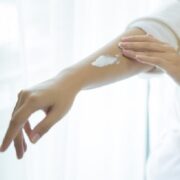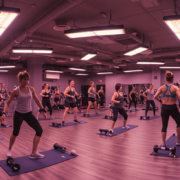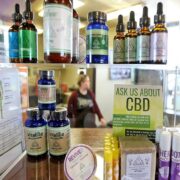Blue light is the next big thing you need to protect yourself from, or so say health and beauty retailers across the country, who have been pushing anti-blue light products. Blue light is half of the sunlight we receive and has a very high energy level. Blue light is inescapable. It comes from the sun, light bulbs, and phoneTV and computer screens. All those warnings about staying away from blue light an hour before bed? That’s because blue light disrupts your sleep rhythms. It can also damage your skin and has been linked with diabetes and obesity. However, as a report in The Next Web finds, cosmetic products claiming to protect you from blue light don’t work.
Table of Contents
The Problem With Cosmetic Products
The biggest source of blue light is the sun. As Next Web finds, a week’s work of blue light from screens is worth just a minute of midday sunlight. If you’re worried about bluelight from your screens, there are practical things you can do, such as using red lights at night; staying away from screens two to three hours before bedtime; or wearing blue light blocking glasses at night ort installing filters that filter out blue and green wavelengths at night time; and increasing the amount of sunlight you get so you sleep better at night. The last bit of advice shows the problem we have: the biggest source of blue light is sunlight and clearly you need it to sleep better.
Into the breach, step cosmetics companies claiming to provide a range of products that protect against blue light. Readers have to be aware that cosmetics companies do not have to seek the U.S. Food and Drug Administration’s (FDA) approval for their products and ingredients. In addition, there are no standardized tests to prove any claims about the effectiveness of products purporting to protect against blue light. The cosmetics industry essentially regulates itself. In short, cosmetics companies can make unproven claims about their products. That doesn’t mean they don’t work, but it does mean these claims have to be treated with caution.
The lack of standardized tests means that even if every product is tested, products would be tested under different regimes, so test results are rendered essentially meaningless because it would be impossible to say which products are better than the other. This is why Avant Permanent Cosmetics insists on using the most rigorously tested products according to standardized tests. Nevertheless, cosmetics companies do not test their products and if they do, they aren’t telling anyone about it. So, whereas, for instance, if you use a sunscreen, its efficacy is measured by its sun protection factor (SPF), under tests regulated by the International Organization for Standardization (ISO). Any sunscreen you use has been tested under the same regime as every other sunscreen. Nothing of the kind happens with products that claim to protect you from blue light.
Where does that leave customers? Looking at a range of products that claim to do things that they cannot objectively prove, and possibly, taking risks that they are unaware of. If we assume that companies are unlikely to knowingly sell harmful products, perhaps the bigger concern is that customers are spending money on products that have no real benefit. What benefits they are appear in the financial statements of the manufacturers.


















Comments